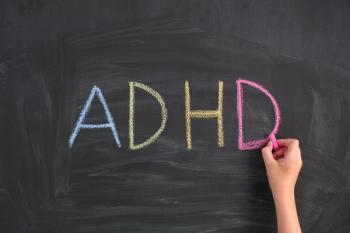
Hyperactivity, learning disabilities, and social isolation…COVID-19 and its effects on ADHD
COVID-19 has created many stresses: mental, job-related, and health. For some caregivers, these stressors are complicated further with caring for a child with attention-deficit/hyperactive disorder (ADHD).
We, as a country, need to emerge from the COVID-19 pandemic with our mental health and well-being strong and prepared to rebuild our communities to confront the new, and as yet unknown new world. The uncertainties about long-term health outcomes for a diagnosis of COVID-19 for oneself, one’s children, other family members, and especially elderly relatives have resulted in high levels of stress, anxiety, and/or depression for the primary caregiver as well as many family members. Complicate these stressors with the care of a child or adolescent with a diagnosis of attention-deficit/hyperactive disorder (ADHD) and the stress, anxiety, and/or depression can be overwhelming for the primary caregiver.
Attention-deficit/hyperactive disorder practice guidelines
The October issue of Contemporary Pediatrics has two articles addressing mental health.
Miranda Hester’s commentary on
Changes in education and resultant social isolation
As we know, children with ADHD usually receive services at school for hyperactivity, inattentiveness, and/or learning disabilities. The pandemic abruptly changed school instruction from in-class professional teacher-learner encounters to virtual classes. In some communities limited or no access to internet or technology to attend virtual classes caused an abrupt stoppage of most professional educational encounters. The majority of parents were not prepared to provide the high level of educational expertise and instruction children receive at school. From my experiences talking with parents who have children with ADHD, many parents are frustrated and stressed during the day-to-day child-parent encounters and feel that their children are not achieving their previously planned educational goals. Many parents are concerned about the long-term effect of social isolation even as children are returning to school. In-school activities and afterschool play dates are limited due to social distancing and concerns for community spread of COVID-19.
What are our options?
As pediatric and family nurse practitioners, we can follow the ADHD assessment, evaluation, and treatment guidelines by authors Drs. Gephart and Lynch. We can, as Dr. Lynch recommends, make connections now with children, adolescents, and families. In our practices, we can engage parents in informed and shared decision-making experiences to help their children and/or adolescents achieve their educational goals, and equally as important, to achieve their socialization goals. Parents as well as their children and adolescents will need to ‘think out of the box’ to find safe ways to achieve their socialization goals but the outcomes will be worth their efforts.
It is extremely important for every health care provider to focus on emerging from this pandemic by helping our patients, ourselves, and our communities to have our collective mental health intact, resilient, and ready for success in a new and yet, unknown evolving world. A world that will hold the promise of a future for the children, adolescents and families we care for deeply and for the communities in which we live, work, play, and thrive.
Newsletter
Access practical, evidence-based guidance to support better care for our youngest patients. Join our email list for the latest clinical updates.






